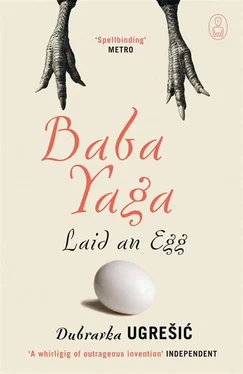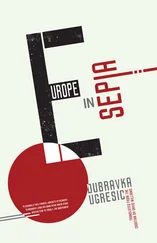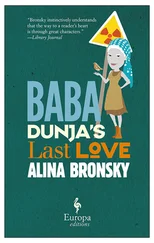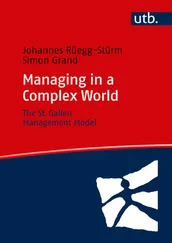She’d sit in an armchair with her feet tucked into the big fur boot, sniffing the air. In time the fur boot merged with her and became a natural extension of her body. With her closely cropped hair, a birdish, beak-like nose, she’d elegantly curve her long neck and direct her grey gaze at the visitor.
‘I have told her a hundred times, let me die,’ she’d say, heaping the blame on her daughter. That was her way of apologising for her condition.
‘Do you know what she has come up with now?’ Mum said in a lively tone as she hung up the phone.
‘What?’
‘Every day she orders pastries by phone from a local pastry shop. She has been eating five big slices of cream pie at a sitting.’
‘Whatever for?’
‘I suppose she thinks the sugar in her system will rocket off the charts and do her in.’
‘Surely she’s not thinking that. She must still remember something from her years as a doctor.’
‘I’m telling you, every day she eats slices of cream pie.’
‘So, how are her sugar levels?’
‘Nothing. Between five and six.’
‘Rotten luck.’
‘And she’s fired the cleaning lady.’
‘Why?’
‘Must be the lady wasn’t doing the job properly.’
‘How could Pupa tell, she’s half-blind!’
‘Good point. There, I wouldn’t have thought of that.’
Then she added gleefully, ‘As far as cleanliness goes, the old witch used to be worse than I was. I don’t remember anyone going into her house in their shoes. All of us were given rag pickers at the door.’
‘Rag slippers?’
‘Yes, I suppose the rag pickers have gone.’
Cleanliness is Half of Health
From our house, unlike Pupa’s, guests left with their shoes cleaned! My mother would sneak out to nab the shoes that visitors had taken off and set by the door when they came in and she’d take the shoes to the bathroom, where she’d rinse the dust or mud off the soles.
She was obsessed with cleanliness. A glistening flat, freshly laundered curtains, a gleaming parquet floor, freshly aired rugs, a wardrobe in which all the clothes were neatly folded, perfectly ironed linens, clean dishes, a bathroom that sparkled, windowpanes without a single smudge, everything in its place – all this gave her great satisfaction. She terrorised us – my father, brother and me – with cleanliness when I was small. Her daily cleaning rampages were accompanied by the phrase – We don’t want to smell bad the way … – and then she’d give the names of people who, apparently, smelled very bad . Lack of cleanliness was invariably coupled with the word ‘disgraceful’ ( Disgraceful! That filth is disgraceful! ). When I was small she would box me into the corner with a crate, and on the crate she’d arrange my toys. I stood trapped in the corner until the daily cleaning was done.
The last time I heard that word ( Disgraceful! ) and that intonation was three years back, during our last visit to my father’s graveside. We usually went there together, and if she couldn’t go, she’d send my brother and me.
‘It’s disgraceful the way people treat their tombs,’ she said pointing to nearby tombstones, and then she added,
‘Here, let’s rinse it one more time.’
To rinse it was to splash the tombstone with water. The whole job of cleaning the stone was arduous. You had to keep taking a bucket over to a water fountain that was not near by, and keep lugging bucketfuls of water back. Usually we scrubbed the tombstone with a brush and detergent, and she’d splash it with water over and over, but this time my mother was not satisfied.
‘So, a little more,’ she commanded.
The path from Dad’s grave to the cab stand was a long one, and she was walking along it, leaning on me, for the last time, though we had no idea then.
‘Now this one always sparkles,’ she said at a tomb we always passed. ‘But these others have been so neglected. Disgraceful!’
In hospital Mum confided in me that she’d sneaked out at night and gone back to the house.
‘Impossible. How?’
‘I slipped out and took a cab.’
‘What did you do at home?’
‘I quickly tidied everything up and then came right back here.’
‘I was at home the whole time; if you had come home, I would have noticed. You dreamed it.’
‘I did not,’ she said, a little anxiously.
I came to hospital every day. The first thing she’d ask when I appeared at the door was,
‘Did you tidy up the flat?’
* * *
Over the last three years we have often had to call an ambulance. It is the easiest and quickest way to sidestep the elaborate bureaucratic procedures and get my mother admitted immediately to hospital. We called an ambulance once when she was in a crisis. As the nurses, supporting her under the arms, were guiding her to the lift, Mum ducked down, spryly, and snatched up the plastic rubbish bag by the door, left there to be taken down and tossed into the bin.
‘Ma’am, please!’ shrieked the doctor, catching sight of her.
When I asked her to tell me something from her childhood, now she would answer curtly, describing it as happy .
‘What was happy about it?’ I’d ask.
‘Everything was clean, and Mother did us up so nicely.’
In hospital, with a tube in her mouth and an IV in her arm, she never let go of her handkerchief. She was constantly dabbing her lips. When she had recovered a little, she immediately asked me to bring her a clean pair of pyjamas:
‘Don’t bring them if they’re not ironed.’
Three years ago – when she sank quite suddenly into a lethargy – I took her first to a psychiatrist, probably unconsciously postponing the day I’d have to take her to hospital, which was what happened immediately thereafter.
The psychiatrist followed the routine.
‘Your first and last name, ma’am?’
‘Vacuum cleaner,’ she said softly, her head bowed.
‘Your name, ma’am?’ the psychiatrist repeated, this time more sharply.
‘Well… vacuum cleaner,’ she repeated.
I was flushed by a wave of idiotic embarrassment: I cannot say why at the time I felt as if it would have been easier to bear if she had said ‘Madonna’ or ‘Maria Theresa’.
While she was in hospital – where instead of the harsh judgement of the psychiatrist ( Alzheimer’s! ) her diagnosis turned out to be more ‘amenable’ – I began to wage my own battle, in parallel, for her recovery. I found someone willing to work from morning to night. He stripped the wallpaper that had nearly fused with the concrete. We painted the walls in fresh pastel colours. We redid the bathroom, laid new tiles and mounted a new mirror. I purchased a new washing machine, a new Hoover, I threw out the old bed in one of the rooms, and bought a bright-red modern sofa, a colourful new rug, a new pale-yellow wardrobe. On the balcony I set out potted plants in new flower pots (which were flourishing that year late into autumn!). I cleaned every corner of the flat and discarded old, useless things. The windows shone, the curtains were freshly laundered, the clothes in the wardrobe were neatly folded, everything was in its place. For the first time I felt I knew what I dared throw away, and what I should keep, and that is why I resisted the urge to toss out a homely old house plant with only a few leaves and left it where it was.
In the upper drawer of the dresser I left untouched the things she treasured: an old watch which had supposedly belonged to my grandfather, my father’s medals (the Order of Brotherhood and Unity with Silver Wreath, the Order for Valour), an elegant box with a sizeable collection of compasses and a Raphoplex slide rule (my father’s things), a key to the mail box from an earlier flat, an old plastic alarm clock with dead batteries, a box of Gura nails (judging by the design probably from East Germany), a silver-plated cigarette box, a Japanese fan, my old passport, opera glasses (from her trip with Dad to Moscow and Leningrad), a calculator with no batteries and a bundle of announcements of Dad’s death, held with a rubber band. I carefully polished the old silver basket-shaped bonbon dish, in which she kept her jewellery: a gold ring, a pin with a semi-precious stone (a gift from my father) and costume jewellery, which she called her pearls . Mum’s ikebana arrangement, the pearls tumbling out of the bonbon dish like writhing snakes, had stood for years in the place of honour on the shelf. I washed all of her dishes carefully, including the Japanese porcelain coffee service she never used. The service was intended for me. ( When I die, I am leaving the coffee service to you. It cost me a whole month’s wages! ) Everything was ready to welcome Mum home, each thing was in its place, the house glistened to her taste.
Читать дальше












